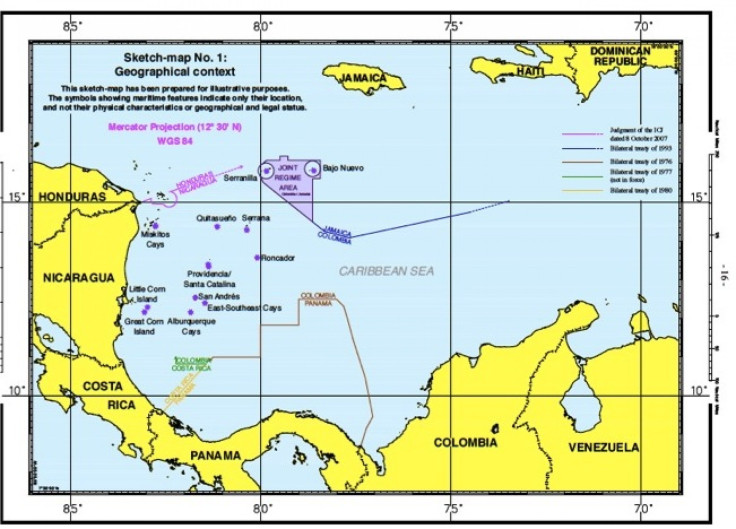Island Row Pits Colombia Against UN Court

Colombia has come out against a ruling made by the U.N. International Court of Justice, or ICJ, last week to settle a territorial dispute between it and Nicaragua.
Bogota has said it will no longer recognize the ICJ’s jurisdiction after the ICJ's ruling upheld Colombia’s claim to a set of islands off Nicaragua’s Caribbean coast but also expanded Nicaragua’s maritime borders around the islands.
"The borders between nations cannot be in the hands of a court of law," said Colombian President Juan Manuel Santos, the BBC reported. "They must be drawn by agreement between the countries involved."
The waters surrounding the islands are believed to be rich in oil and natural gas deposits, which Colombia has also laid claim to.
Nicaragua welcomed the judgment, which expanded its maritime borders by some 19,000 square miles.
Colombia laid claim to the chain of seven islands based on a 1928 treaty signed by the two countries, which the ICJ partly upheld in a 2007 ruling, granting sovereignty over three of the islands and later including all the islands in its latest ruling.
Nicaragua’s leftist Sandinista government withdrew from the treaty in the 1980s, and the two countries formally brought their dispute before the ICJ in 2001.
The islands lie roughly 140 miles off the coast of Nicaragua and 480 miles from Colombia's mainland.
© Copyright IBTimes 2024. All rights reserved.











